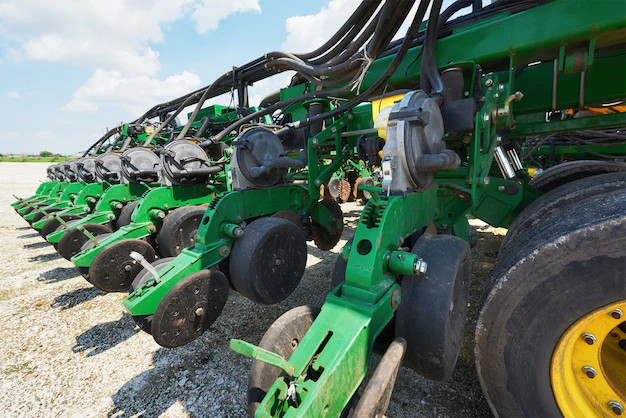Selecting the right farm machinery for small-scale farming is crucial for maximizing productivity and efficiency on your farm. Here are some steps to help you make the right choices:
- Assess your needs: Start by assessing your specific farming needs. Consider the size of your farm, the type of crops or livestock you have, and the tasks you need to accomplish. Make a list of the essential machinery you require.
- Prioritize tasks: Determine the most critical tasks on your farm that can benefit from mechanization. This could include soil preparation, planting, harvesting, irrigation, or livestock handling. Prioritize these tasks based on their impact on your farm’s productivity.
- Research machinery options: Once you have identified your needs and priorities, research the available machinery options that can fulfill those requirements. Consider factors such as size, power, capacity, and compatibility with your farm’s terrain and crops.
- Seek expert advice: Consult with agricultural experts, local farmers, or agricultural extension services in your area. They can provide valuable insights and recommendations based on their experience and knowledge of the local farming conditions.
- Consider affordability: Small-scale farmers often have limited budgets, so it’s crucial to consider the affordability of machinery. Compare prices, analyze financing options, and consider both new and used equipment. Keep in mind the long-term costs of maintenance, repairs, and fuel consumption as well.
- Assess reliability and durability: Look for machinery brands and models known for their reliability and durability. Read reviews, check warranties, and consider the availability of spare parts and service support in your area. Reliable machinery will save you time and money in the long run.
- Evaluate ease of use: Small-scale farmers often handle multiple tasks and may not have extensive mechanical experience. Choose machinery that is user-friendly, with clear instructions and accessible controls. Consider attending training programs or seeking guidance to ensure safe and effective use.
- Test before buying: Whenever possible, test the machinery before making a purchase. This will help you evaluate its performance, handling, and compatibility with your specific farming needs. Test different models and brands to find the one that suits you best.
- Consider versatility: Opt for machinery that offers versatility and can perform multiple tasks. For example, a tractor with different attachments can be used for plowing, planting, and harvesting, reducing the need for additional equipment.
- Think about future scalability: As your farm grows, you may need to expand your operations. Consider machinery that allows for future scalability and can accommodate increased workload or diversification of crops and livestock.
- Safety considerations: Prioritize safety features when selecting machinery. Look for equipment with appropriate safety guards, emergency stop buttons, and other safety measures. Ensure that operators receive proper training on machinery operation and safety protocols.
The right machinery will depend on your specific farm and requirements. Take the time to research, compare options, and make informed decisions to ensure that you invest in equipment that will enhance your productivity and profitability in the long run.
Join 'Farmers Mag' WhatsApp Channel
Get the latest Farming news and tips delivered straight to your WhatsApp
CLICK HERE TO JOIN






